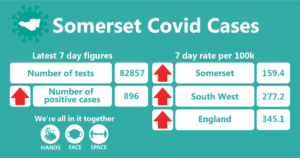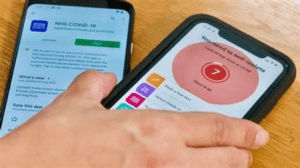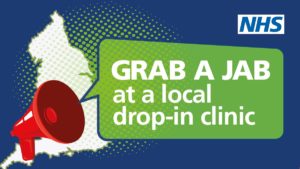Welcome to the latest edition of the weekly Somerset Covid-19 update for key stakeholders. This update is produced on behalf of the Somerset Covid-19 Engagement Board and is designed to provide a weekly update on the current Covid-19 situation in Somerset.
From Monday 19 July, the majority of legal restrictions relating to Covid-19 will be lifted, but the risks of Covid-19 have not gone away. As cases rise here and across the country, we urge you to be cautious, not only for yourselves, but to protect our vulnerable residents and frontline workers.
We are advising people to think carefully about continuing to keep the all important two metre distance where possible – the UK’s Scientific Advisory Group for Emergencies (SAGE) estimates that the risk of transmitting Covid-19 at 1 metre could be up to ten times higher than at 2 metres. Please view The BMJ website for more information.
As another measure to protect more vulnerable members of our local communities, as well as workers in key services such as shops and pubs, we recommend continuing to wear a face covering in indoor spaces such as in shops, on public transport or in healthcare settings. Please also continue to wash your hands thoroughly and regularly. Meet up outside rather than inside, and, if you are inside, make sure you let the fresh air in by opening windows and doors.
Finally, it’s important to:
- make sure that you get both doses of the vaccine,
- self-isolate when required to do so; and,
- use rapid tests twice a week.
So, our message is please ‘think twice, do the right thing, and don’t let your guard down’. Thank you.
Latest Covid Dashboard: The following link below will take you to our website: Coronavirus (COVID-19) (somerset.gov.uk) Then scroll down the page until you get to ‘COVID-19 Dashboard’ in the list. Click on this and the dashboard will open.
‘Remember, everyone can catch it, anyone can spread it’.



| David Fothergill, Leader of Somerset County Council Twitter: @DJAFothergill | Trudi Grant, Director of Public Health Twitter: @SomersetDPH | Clare Paul, Cabinet Member for Public Health and Wellbeing Twitter: @Clarepaul_ |

In the week up to 10 July approximately 82857 tests were carried out across the county and there have been 896 new confirmed cases. The rates have increased to 159.4 per 100,000, however we still remain well below the South West and England rates as you can see in this graphic.
THIS WEEK’S HEADLINES:
The main items featured in this week’s update are:
- Workplace, care and school settings
- Vaccination update
- Testing Update
- Resources and further information
Workplaces: From 19 July employers can start working towards employees returning to the workplace.
The Government’s message to employers is one of caution. Employers have a duty to protect the health, safety and welfare of their staff and customers and Covid-19 risk assessments will need to be reviewed in the light of the latest advice.
It is important to respect and be considerate of those who may wish to take a more cautious approach as restrictions are lifted. The following behaviours should be encouraged by staff to help protect themselves and reduce sickness absence:
- Meeting in well-ventilated areas where possible, such as outdoors or indoors with windows open.
- Wearing a face covering where you come into contact with people you don’t normally meet in enclosed and crowded spaces.
- Washing your hands with soap and water or using hand sanitiser regularly throughout the day.
- Covering your nose and mouth when you cough and sneeze.
- Staying at home if unwell, to reduce the risk of passing on other illnesses onto colleagues and others in your community.
- Considering individual risks, such as clinical vulnerabilities and vaccination status.
Businesses must not require a self-isolating employee to come to work and should make sure that workers and customers who feel unwell do not attend the setting. The Government will provide guidance on how businesses can reduce unnecessary contact in the workplace, where it is practical.
Businesses will be encouraged to display QR codes for customers to check in using the NHS Covid-19 app, to support NHS Test and Trace, although it will no longer be a legal requirement.

What to do when ‘pinged’ by the Covid-19 app. The app alert is advisory but should be taken seriously. It indicates your phone has been close to the phone of a Covid-19’ case for long enough for you to be at risk of catching it, so you should isolate. Any decision to disregard the advisory alert by employers or individuals should only be taken where it is clear that the ‘ping’ has occurred in a situation where there is a high degree of confidence that the source is known and that close contact has not occurred, in or out of work. An example would be where phones have been placed in lockers, and all ping at the same time, AND all relevant staff are known not to have been in close contact. With cases increasing in the community it becomes increasingly difficult to be sure why a person has been pinged, so we advise you to err on the side of caution. Information about the app and FAQs can be found on the NHS website.
Covid-status certification will not be required in law as a condition of entry for visitors to any setting. Organisations are already able to ask visitors for proof of Covid-status, as long as they meet existing legal obligations including under equality law. The Government is providing a way for individuals to easily demonstrate their Covid-status. This can be achieved by completion of a full vaccine course, a recent negative test, or proof of natural immunity – through the NHS Covid Pass on the NHS app.
Vaccinations for workplaces. A full guide can be found on the GOV.uk website.
As an employer, you are in a unique position to support the COVID-19 vaccination programme by encouraging staff to get both their first jab and then, when they are eligible, their second jab, to ensure they have maximum protection. Find out more on the NHS website.
Supporting your employees getting vaccinated comes with several benefits. Having the COVID-19 vaccine means:
- your employees can better protect themselves and those around them
- lower risk of your employees catching and spreading COVID-19 to colleagues, therefore reducing the negative impact on your workforce
- protecting your customers when using your services
- bringing your staff back safely into the workplace sooner
All those aged 18 and over can book their vaccination through the NHS booking service. You can also call 119 free of charge, anytime between 7am and 11pm seven days a week. You can book via the NHS.UK site.
As we were finalising this newsletter government issued revised Covid guidance on working safely for a range of different workplaces. Please check out the guidance on the NHS website as it applies to you.
Care Sector: In the week to 10 July, there has been 35 cases at 31 social care settings.
Following recent Government announcements and the move to Step 4 of the roadmap, we remain cautious in managing the risk as cases of Covid 19 are increasing in the care sector along with other sectors. The care sector guidance hasn’t yet been updated considering the changes. It is therefore crucial to continue to mitigate the risks via:
- Vaccination – see below
• Testing – regular testing according to the latest guidelines, spread throughout the week to avoid result delays, not within 90 days of a positive Covid-19 test and prompt management of suspected cases. - Infection Prevention Control (IPC) – strict IPC measures, correct use of PPE, limit cross-sector working, consideration of cohorting/zoning and staff IPC refresher training.
- Ventilation – opening of windows and doors and inclusion in risk assessment
- Monitoring and reporting – recognition of wide spectrum of Covid 19 clinical presentation and reporting of all cases to PHE.
- Support and rehabilitation – recognition and management of the impact of Covid 19 on physical, mental, emotional and social aspects of residents and staff.
Vaccination for care settings: Mandatory vaccinations are likely to be implemented in care homes so it continues to be important to have conversations with staff about vaccinations. Lots of resources are available:
- Your questions answered on the Covid 19 vaccine video – with Professor Jonathan Van Tam and Dr Nikita Kanani can be viewed on YouTube
- Vaccine communications toolkit – new suite of resources to help care managers reassure staff about having the vaccine
- Vaccination Buddies – volunteers who can offer 1-2-1 telephone support
More information
For information related to Covid-19 for adult care providers please visit the Somerset Safeguarding Adults Board website.
Schools and Early Years settings: As expected, we continue to see a steady increase in cases in under 18 year olds. As all educational settings begin to look forward to the summer holidays and as regulations relax, transmission is more likely to occur during social gatherings outside of school. So it is important to remember that asymptomatic testing is key to keeping the virus under control and that it is still a legal requirement for all under 18s to self-isolate for 10 days if they test positive, along with their contacts.
We have 161 active incidents at 67 school settings, and 20 active incidents at 18 nursery settings.
Following the recent announcement about the move to Step 4 of the roadmap on 19 July the operational guidance for schools and other educational settings has been updated (Schools COVID-19 operational guidance ). The guidance states that from 19 July, schools will no longer be required to keep children in bubbles, although if they wish to keep them in place until the end of the summer term they will be fully supported to do so.
Vaccination Update: For the latest information about the Somerset vaccination programme visit the NHS website.

This weekend will see more walk in vaccination centres across the county. For full details, go to the NHS website.
Do you have, or know someone who has concerns over receiving the Covid-19 Vaccine? We have a team of trained Vaccination buddies who are here to help! The programme enables people to be offered support via a ‘buddy’ who can help them to make informed decisions about having the Covid-19 vaccination.
People can be referred (or self-refer) to the scheme and a Vaccination Buddy will contact them by phone to discuss their concerns and offer information and reassurance. Vaccination Buddies come from all walks of life and have the necessary skills and knowledge to support people in a friendly, non-judgemental way.
Testing: As mentioned in the introduction, cases are increasing both within Somerset and nationally due to the Delta variant which is 60 per cent more infectious. Given this, we are still encouraging people who do not display symptoms (asymptomatic) to take lateral flow tests twice a week. This will be particularly important after 19 July and will help to keep more of us safe, because regular lateral flow testing leads to earlier identification of people who are infected without having symptoms. We would ask that before meeting any vulnerable friends and family socially, or working with vulnerable colleagues, you continue to use these tests.
You can order lateral flow tests online to be delivered to your home, call 119 to have a kit home delivered through the post, or collect a kit at a local pharmacy. For further information on lateral flow tests, including a video showing how to perform one, you can visit the Somerset County Council website.
It still remains the case that if you have symptoms of the infection, to take a PCR test, which can be done by phoning 119 or ordering a test through the GOV.uk website.
Resources and further information: Please do keep an eye our Healthy Somerset website, which has a huge amount of information and resources to help keep everyone healthy happy and safe at this time.
For the latest local information as well as digital resources, posters and flyers please visit the Somerset County Council website.
The Somerset Local Outbreak Management Plan outlines how we, the council, will work with the NHS Test and Trace Service, PHE, the NHS and other partners to ensure a whole system approach to preventing and managing local outbreaks. This can be found here.
Finally, please like them on Facebook, follow them on Twitter and share their posts with your networks to help them in communicating these important messages. Follow their Director of Public Health Twitter account too.

